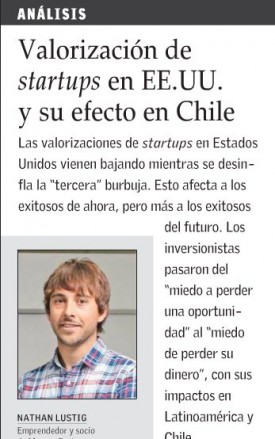A version of this post appeared in the Chilean newspaper El Mercurio on August 18th with the headline Inversión sin riesgo no es inversión.
The Chilean government, via CORFO, has tried to seed the Chilean startup ecosystem to get it to grow more quickly. There’s always room for improvement, but overall, they’ve done good work and the ecosystem has grown. The three main programs CORFO has to support startups are:
- Startup Chile – $20m ($40-25k depending on exchange rates) equity free grants
- SCALE – $60m (89k-120k) equity free follow on grants
- SSAF – $20m, then $40m (89k-120 total) follow on either direct or via incubators for 7% option for up to three years
CORFO awards many SSAFs each year, most via incubators that use CORFO’s money to “invest” in startups. These startups pass a selection process, then get $10-20m upfront, and then if they make it through each incubator’s unique process, they can get the $40m follow on. The incubators put the startups through an acceleration process, which can either be helpful, neutral, or in some cases harmful to the startup, depending on the incubator’s skillset. (more…)

